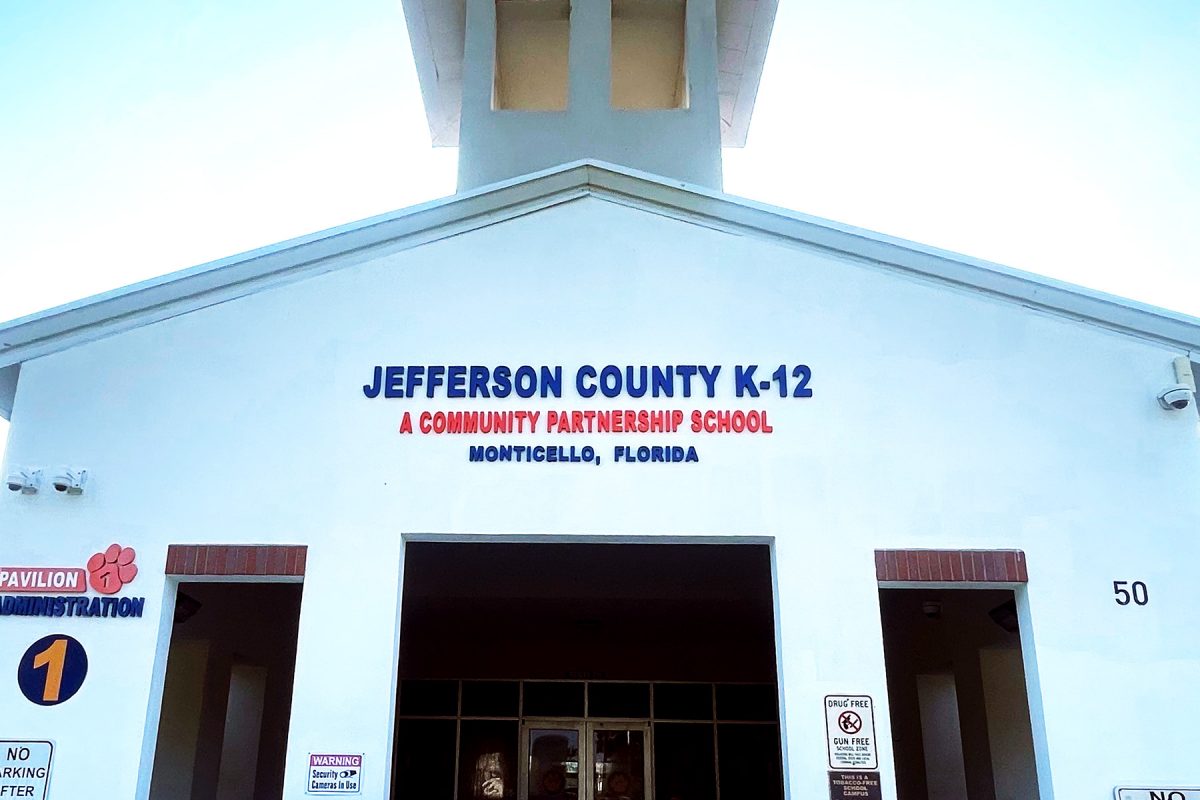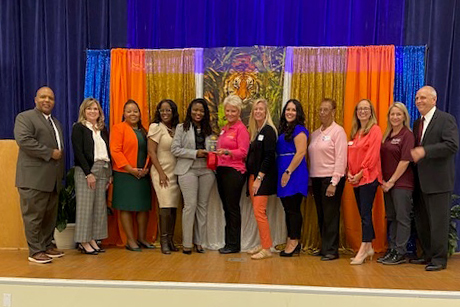
A Florida State University team of faculty and administrators has served as integral partners in supporting Jefferson County Schools (JCS), providing research expertise and resources, as the district establishes a new community partnership schools model.
Through the success of this initiative and the dedication of JCS faculty and staff, the school district earned a 'B' grade from the Florida Department of Education for the 2023-2024 school year.
As a core partner, FSU has provided evidence-based research support and helped leverage relationships to provide a wider array of resources and services to JCS, helping remove barriers to education in the community.
"The FSU team is proud to play a part in the achievements of Jefferson County Schools and the community partnership schools model," said Jarrett Terry, assistant provost for centers, institutes, and community engagement. "We recognize and commend both the Jefferson County community's and the school district's hard work and dedication, which were the main drivers of the success that propelled them to achieving a 'B' grade. FSU is committed to supporting and enhancing the partnership's efforts in working toward solutions for community-defined problems."
In 2022, JCS launched the new school model to better support the district's success while simultaneously addressing the needs of the community. The innovative community partnership schools (CPS) model is an evidence-based approach that aims to improve student achievement and well-being by addressing the academic, social, emotional and health needs of students and their families.
The model involves four types of community partners, who have all signed a 25-year memorandum of understanding as part of the shared governance model:
- Local school district: Jefferson County Schools
- Nonprofit: Children's Home Society of Florida
- Higher Education: Florida State University, Florida A&M University, and North Florida College
- Health Care: Florida Department of Health - Jefferson
The CPS model focuses on four pillars: wellness supports, expanded learning time and opportunities, family and community engagement, and collaborative leadership and practice. All services and supports at the school fall under one of these four pillars.
With Children's Home Society of Florida as the lead partner, partners work with the community to identify and address the barriers and opportunities for learning and development. All of the partners have a place on the executive cabinet, which meets monthly to discuss goals for the year, strategic planning and how to best provide services and supports.

Erin Bush, assistant professor in the School of Communication Science & Disorders within FSU's College of Communication and Information, currently serves as the faculty lead for FSU's support of the CPS. Over the past two years, she and her team have facilitated a needs-assessment for the district to best determine what the needs and challenges in Jefferson County are and how the school and community can be mutually beneficial partners.
"We're really working with the community and researching with them," Bush said. "We can't come in and provide a top-down solution and think that's going to work as an outsider to any community. We have to come in and really get to know the community to begin to understand their unique needs."
The needs-assessment included participants from all aspects of the greater JCS community and was conducted to collect and analyze data on student and community member perceptions of the benefits and challenges they experience living in Jefferson County. The study also reviewed existing and available community supports and resources.
"The CPS model really takes into consideration all aspects of students' lives and tries to support their health and well-being ¾ not just keeping it isolated to their school performance," Bush said. "The model understands that school performance is greatly influenced by all of the other things going on in the students' lives and in the community."
The results of the needs assessment are set to be presented to the community partnership steering committee and will inform new programming and services for the community.
"FSU was particularly instrumental in supporting the needs assessment for Jefferson County Schools," Bush said. "The needs assessment is necessary to uncover what needs to be done for the community in the future. But the real heroes of the story are the individuals at Jefferson County K-12 school and the community partnership school. We're just happy to be one of the supportive partners."
Jefferson County K-12, the only school in the district, is the only K-12 community partnership school in the state of Florida and enrolls over 700 students annually. Lori Livingston, director of the community partnership school at Jefferson K-12, said that having a large age range of students presents more opportunities than it does challenges.
"We have consistency with not just the education, the quality of the education that's being provided, but also the relationships that are built with the staff, parents and community," Livingston said. "With a community-based research approach, we are really able to maximize our resources while creating ownership within the community."
Bush and Livingston jointly presented the findings to date during the July Learning Series of FSU's College of Medicine's Network for Clinical Research, Training, and Community Engagement (NCRT-CE) series, providing insight into how FSU's faculty and partners can focus on public impact activities.
"Having Florida State University as one of our core partners definitely adds to the legitimacy of the CPS model, and not just on paper," Livingston said. "Assistant Provost Jay Terry sits on our cabinet and helps us solve problems and commits resources, which is invaluable for us. Florida State has found ways to support us outside of the box and is invested into going above and beyond the minimum requirements to really make an impact and a difference."






